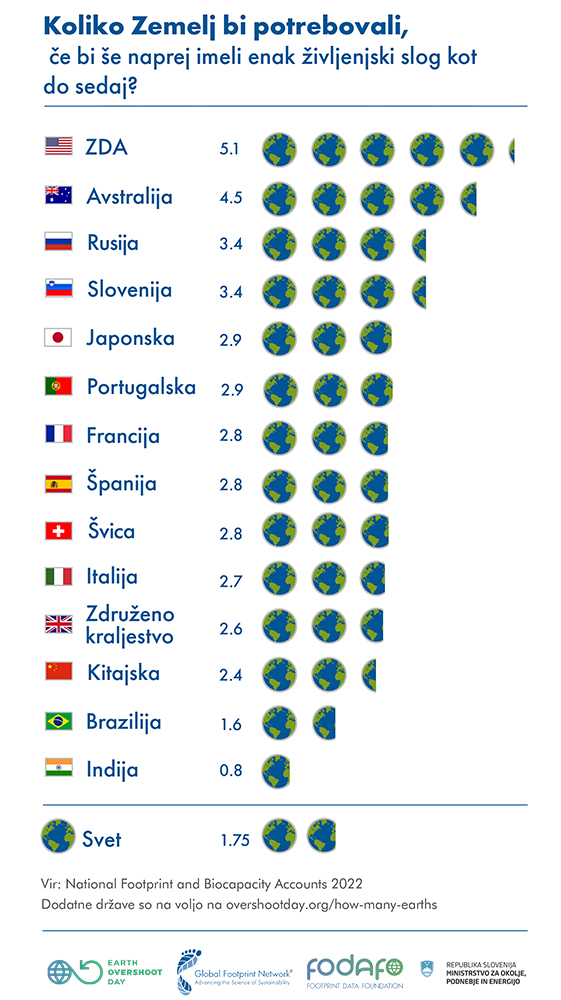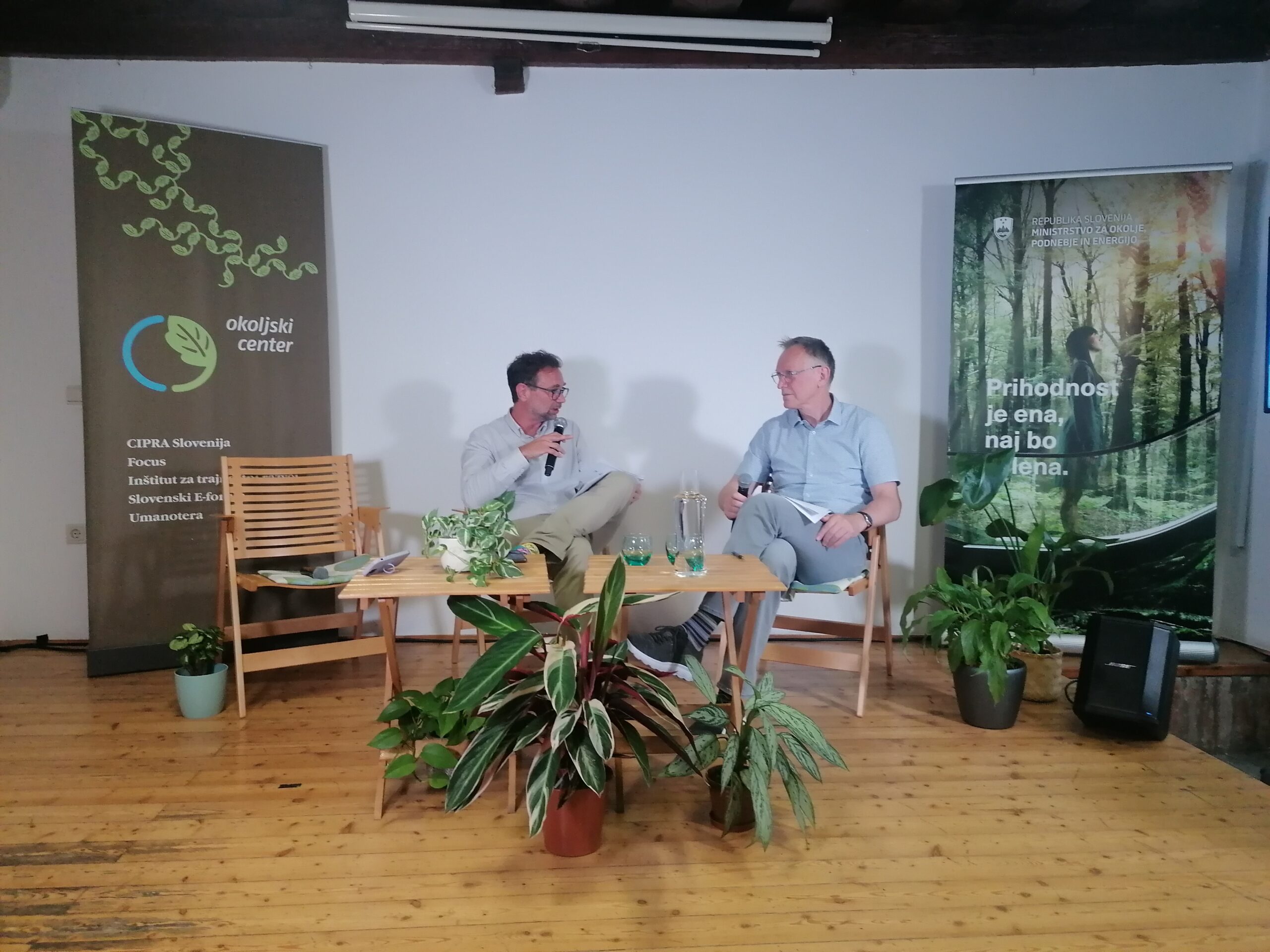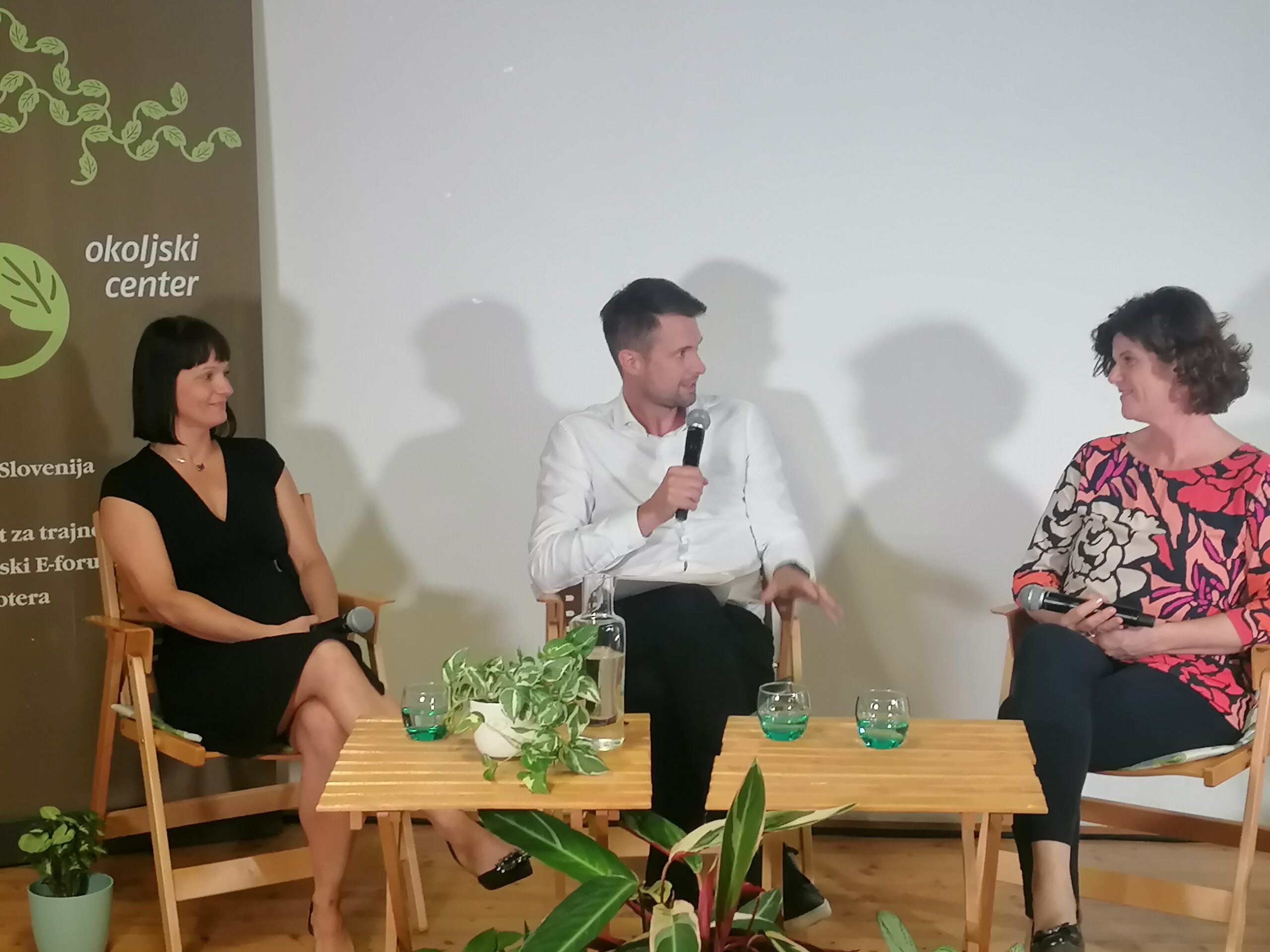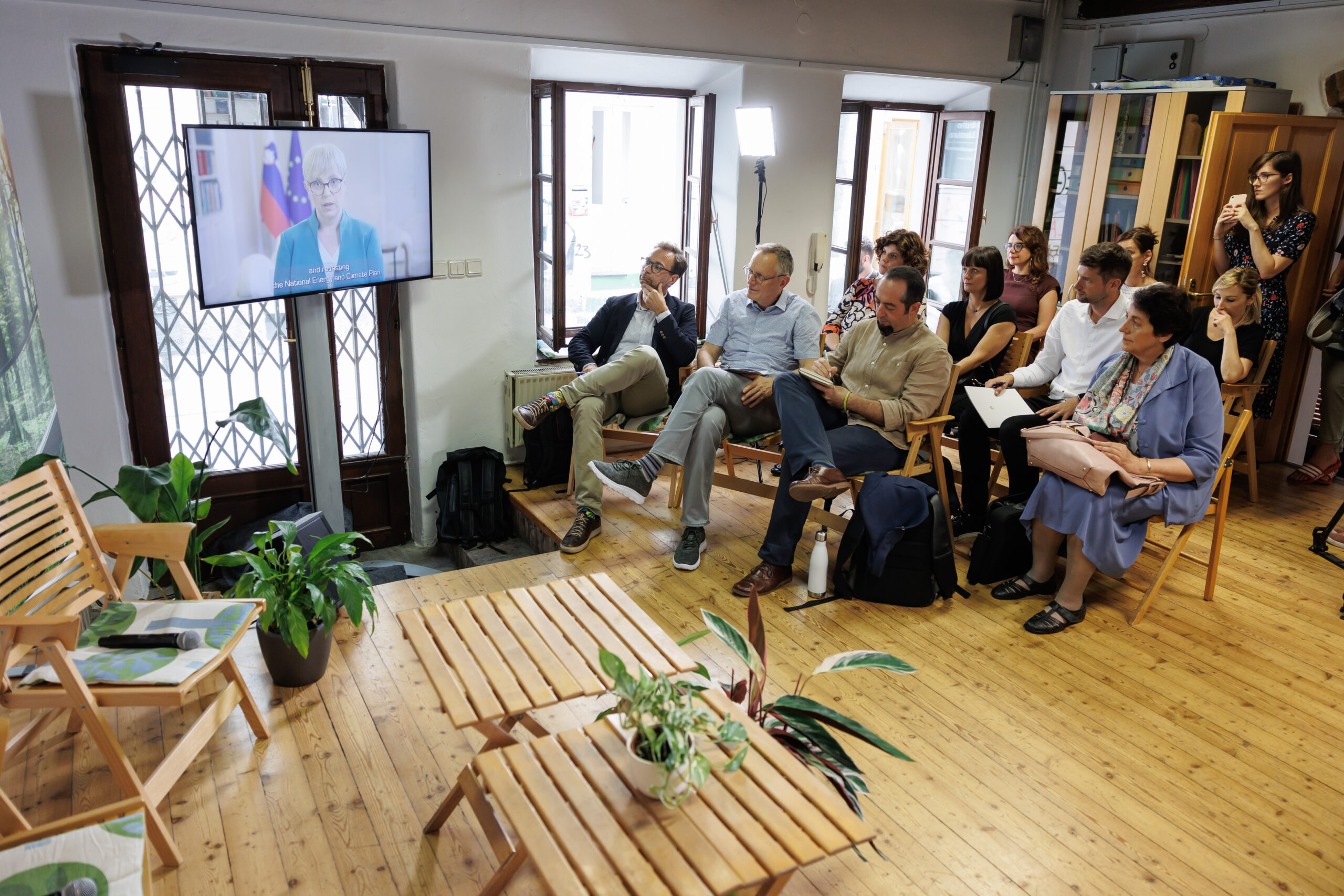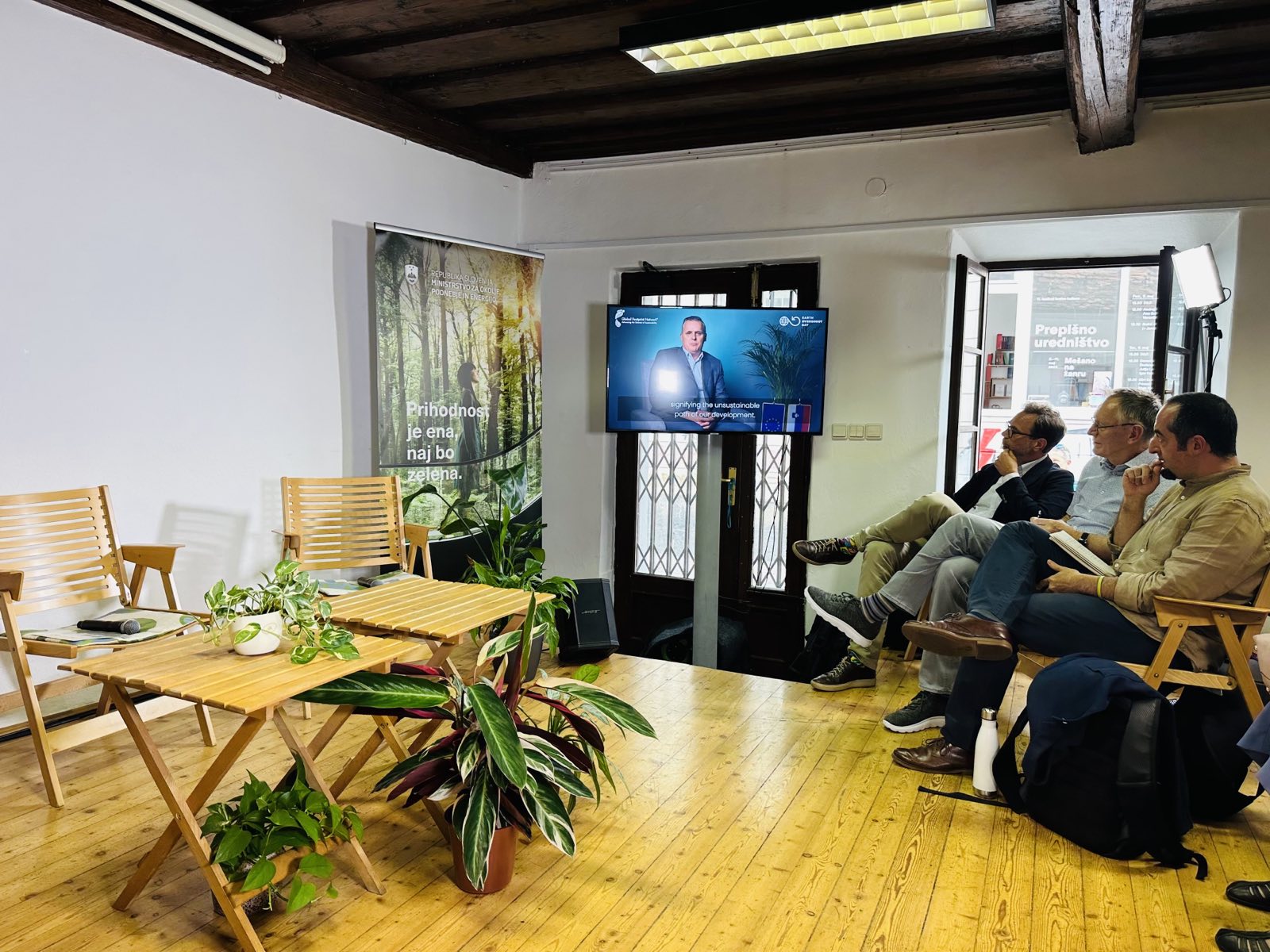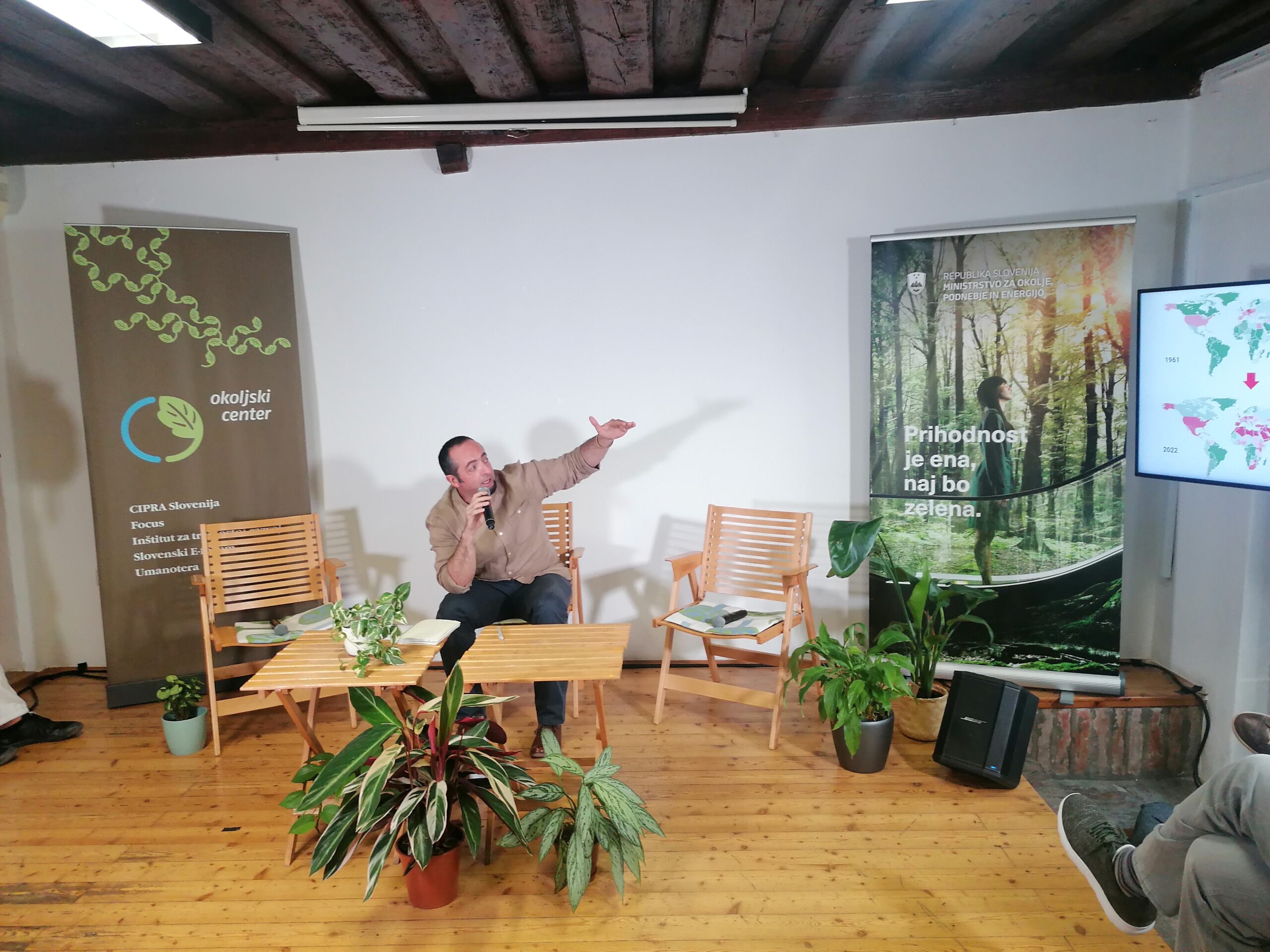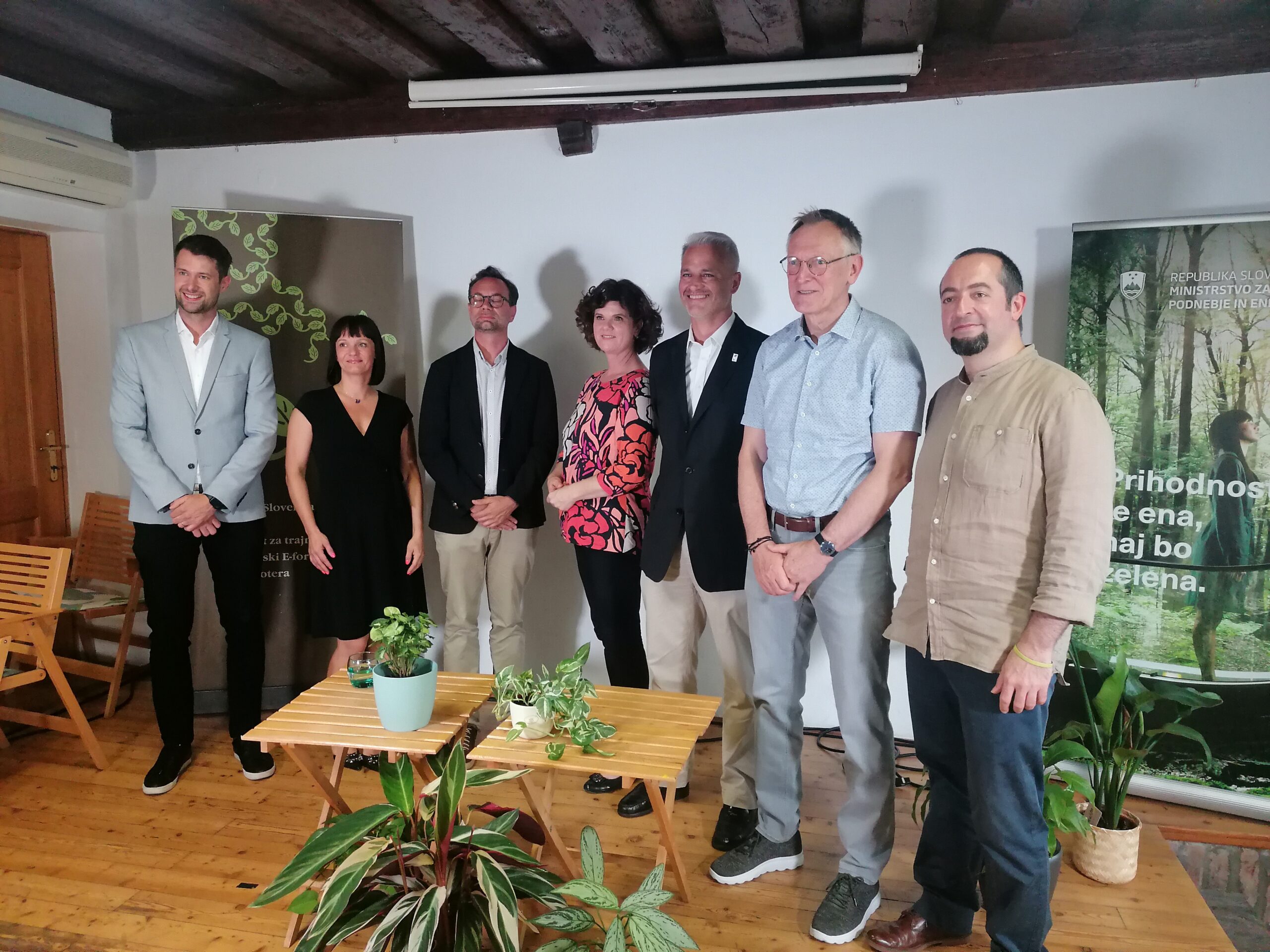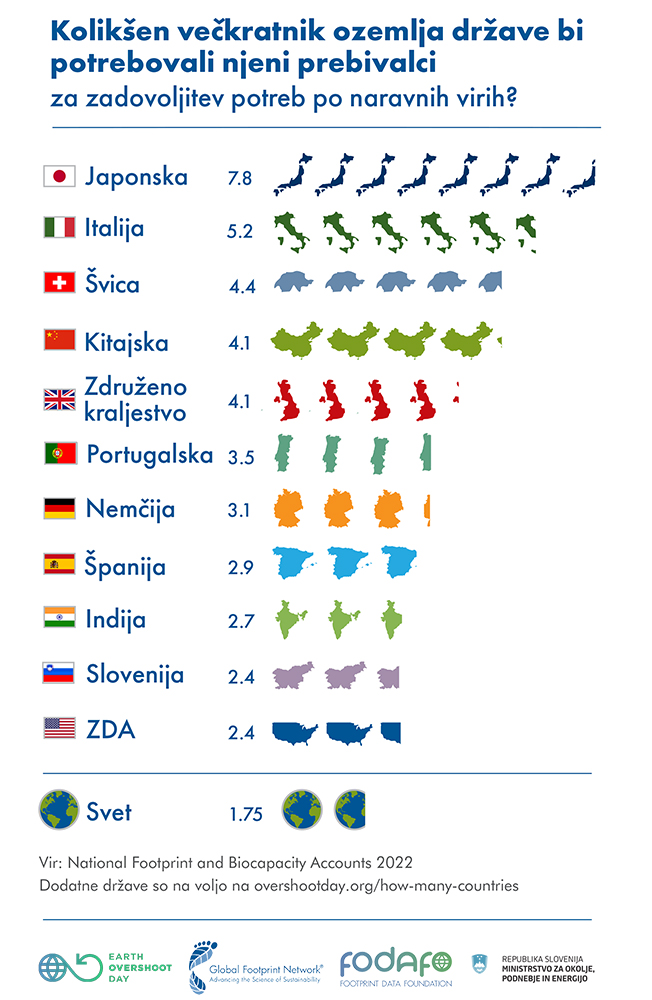LJUBLJANA, SLOVENIA – AUGUST 1 – Marking a new chapter in environmental stewardship, Slovenia’s Environment Minister Bojan Kumer, recognizes the Ecological Footprint as a pivotal metric. This tool drives environmental action, guides the country’s development trajectory, and serves as a compass for regional development planning. “Earth Overshoot Day is a line we cross far too early, underscoring the unsustainable course of our development. However, it is not a cause for despair but a call for action,” Minister Kumer emphasized.
“We are now deciding what kind of country we want to live in for the next 20 or 30 years.” said the President of the Republic of Slovenia Nataša Pirc Musar, calling for action to ensure that Slovenia becomes “a modern, green and technologically innovative country in the coming decades; a country which young people will no longer wish to leave, but one where they will be able to live and work in a safe, attractive and creative home environment.”
State Secretary Uroš Vajgl unveiled the One-Hour Initiative. The new initiative leverages the Ecological Footprint method to stimulate innovation, fortify Slovenia’s economy, and secure the country’s enduring prosperity. It aims to increase knowledge in Slovenia’s private sector about environmental accounting and reporting while empowering them with means to track and contribute to the transition towards a sustainable economy. “Slovenian companies that produce goods and services while also reducing global overshoot are set for future success. The One-Hour Initiative provides the springboard for the private sector’s contribution to the Footprint reduction target and successful execution of the European Green Deal,” affirms State Secretary Uroš Vajgl.
The event drew influential supporters, including UN Climate Change High-Level Champion for COP28 and IUCN President Razan Al Mubarak and Co-Chair of the International Resource Panel at UNEP Dr. Janez Potočnik.
“All too often we act in a way that shows that we are still not well aware of the seriousness of the situation and that we are – for the comfort provided by the ecological overshoot – still willing to risk our future and the future of next generations. The current economic model is wasteful and unfair. It is not sustainable, and the key question is how to provide efficiently and fairly for people’s needs by using less energy and less raw materials. This is, of course, a path that requires a good understanding of the problems and systemic change” highlighted Dr. Potočnik.
Al Mubarak underscored, “The crucial point is this: As we move towards moving the date, we have the opportunity to fortify our cities and countries. The real question lies in whether we possess the courage to seize these opportunities.”
“Slovenia’s official commitment to measure and reduce its Ecological Footprint, as bolstered by today’s launch of the One-Hour Initiative in partnership with Global Footprint Network, demonstrates true political leadership towards sustainability. We’re thrilled about the government’s encouragement of the private sector’s participation and eagerly anticipate collaborating in these future engagements,” commended Global Footprint Network Med Director Dr. Ale Galli.
Media Contact
soj.mope@gov.si (Slovenia)
media@footprintnetwork.org (Global Footprint Network)
Additional information
Background and previous press releases available at www.overshootday.org/slovenia
Case Studies
Slovenia’s first almost zero-energy kindergarten made of Slovenian wood
The municipality of Selnica ob Dravi and the companies GIC GRADNJE and Lumar IG have signed a contract for the construction of a sustainable kindergarten made of wood. It will be the first almost zero-energy wooden kindergarten, which will require extremely low energy costs. It is also the very first public facility in Slovenia to be built entirely from Slovenian wood. The patented iQwood solid wood construction, free of glues, metals and chemicals, was chosen to make the kindergarten even better and more pleasant for the children.The new kindergarten will be spread over an area of just over 3000 square meters. Once built, it will have 10 sections and will include a central space and a sports playroom, terraces, a distribution kitchen, assistants’ rooms, administrative and utility areas. The kindergarten will be accompanied by playgrounds and a car park.
By producing polymers and fibres sustainably, they enable a circular economy
Aquafil is an international company specialized in the production of polyamide fibres used in a variety of products including clothing, carpets and industrial materials. It is committed to sustainable development and innovation in the field of environmental responsibility. They focus their operations on reducing their environmental impact. They have developed an innovative technology, ECONYL®, which enables the recycling of waste (fishing nets) and other waste materials and converts them into high-quality polyamide fibres for the textile industry. This helps to reduce waste and use of existing resources. By using ECONYL® technology, Aquafil actively promotes the concept of a circular economy. Instead of materials becoming waste, they are recycled and reused, creating a positive impact on the environment and reducing the consumption of new natural resources. They participate in various social projects focusing on education, culture and sustainable development of the local environment, which contributes to a positive impact on the community. They strive to continuously improve and expand their products in the global market.


